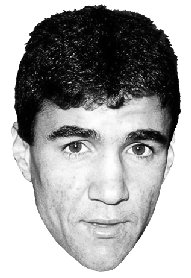



























Jeff
Fenech (born May 28, 1964) is an Australian retired boxer, a three
weight world champion and a boxing trainer. During his career Fenech
was trained by renowned Sydney based trainer Johnny Lewis.
Boxing
Career
Fenech was born in St Peters, Sydney. After playing junior rugby
league and getting into trouble with the Police as a kid, Fenech was
turned onto boxing when he attended the Newtown Police Boys Club in
Sydney where he met Johnny Lewis. From there Fenech has a stellar
amateur career, which led to him representing his country at the 1984
Summer Olympics in Los Angeles where he was selected as the boxing
team captain. At the Olympics, Fenech lost a controversial Quarter
final bout to Yugoslavian Redzep Redzepovski. Fenech was initially
given the decision, but after intervention by the Olympic Boxing Committee
and a total recount, the decision was reversed with Redzepovski being
awarded the win. Many of the other boxers and those in the press,
and not just those from Australia, felt that Fenech had been unfairly
robbed of a chance to win an Olympic medal and most boxing writers
noted how political amateur boxing was, especially at the Olympic
Games.
It was that decision that led Fenech to turn professional
later in 1984, and in his first professional fight defeated Bobby
Williams by a knockout in two in his homeland. Fenech quickly gained
a reputation as a fast starter: He won his first eleven bouts by knockout,
and held his first fight abroad in only his fourth fight, when he
beat Ilisa Manila by a knockout in two at Fiji.
He beat fringe
contenders Wayne Mulholland and Rolando Navarro, both by a knockout
in the fifth round, to start 1985. After those two wins, he was placed
number one among the world's bantamweights by the International Boxing
Federation. However, his early wins by KO had some of the press wondering
if he could last the full 15 round distance.
Bantamweight champion
Fenech
only took six professional fights to become the number one contender,
and he placed in fifth place all time for the boxer who got to fight
for the world title the fastest after beginning his career when he
challenged Satoshi Shingaki for the IBF Bantamweight title in only
his seventh bout, displacing the second Davey Moore, and trailing
Leon Spinks, Saensak Muangsurin, Pete Rademacher and Rafael Lovera.
Fenech was the third fastest boxer to become a world champion, behind
Muangsuring and Spinks, when he knocked out Shingaki in nine rounds
in front of a packed house at the Horden Pavilion in Sydney. After
two non-title knockout wins, he gave Shingaki a rematch at the State
Sports Centre in Sydney and retained the crown with a knockout in
three. After one more non-title knockout win, Fenech had to go the
distance for the first time, when he faced American Jerome Coffee
at the Sydney Entertainment Centre, retaining the title by a 15 round
unanimous decision.
In 1986, Fenech had only two bouts, but
they were both major fights: He won a 10 round, non-title fight decision
over former WBC bantamweight and future super bantamweight world champion
Daniel Zaragoza, and he retained his IBF world championship with a
TKO in 14 over American Steve McCrory in a bout dubbed "Olympic Revenge"
by Fenech's then promoter Bill Mordy. McCrory, like Fenech, had competed
in the Flyweight division at the Los Angeles Olympics, winning the
Gold Medal by defeating Redzep Redzepovski in the Final. After the
bout at the Sydney Entertainment Centre, Coffee graciously allowed
the Australian to wear his Olympic Gold Medal to show off to the crowd.
During the fight with McCrory, Fenech wore green and red trunks, the
colors of the South Sydney Rabbitohs rugby league team with their
tough forward Mario Fenech (no relation) in his corner. McCrory was
trained out of the world famous Kronk Gym in Detroit.
Super
bantamweight champion

